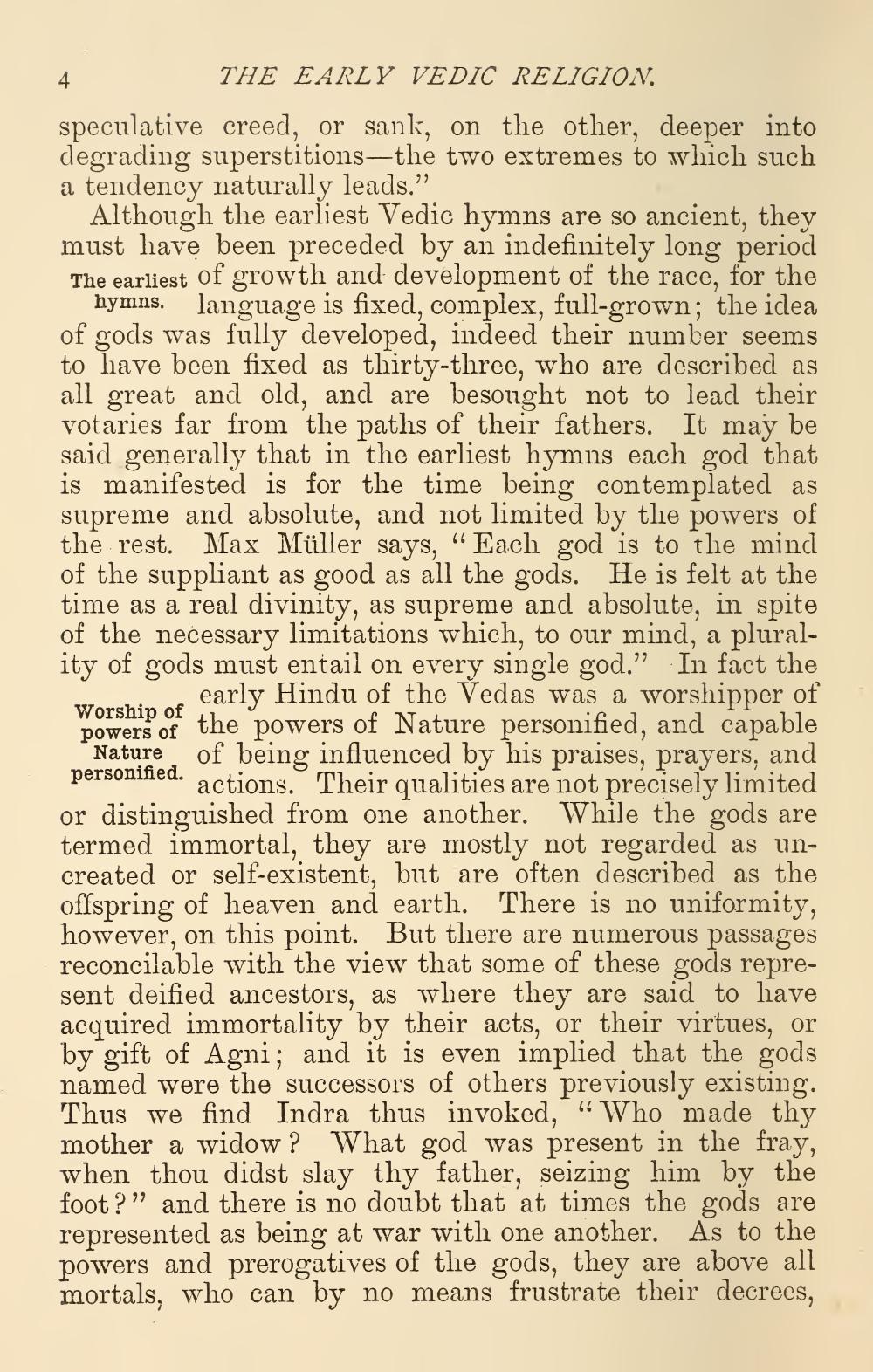________________
THE EARLY VEDIC RELIGION. speculative creed, or sank, on the other, deeper into degrading superstitions—the two extremes to which such a tendency naturally leads."
Although the earliest Vedic hymns are so ancient, they must have been preceded by an indefinitely long period The earliest of growth and development of the race, for the
hymns. language is fixed, complex, full-grown; the idea of gods was fully developed, indeed their number seems to have been fixed as thirty-three, who are described as all great and old, and are besought not to lead their votaries far from the paths of their fathers. It may be said generally that in the earliest hymns each god that is manifested is for the time being contemplated as supreme and absolute, and not limited by the powers of the rest. Max Müller says, “Each god is to the mind of the suppliant as good as all the gods. He is felt at the time as a real divinity, as supreme and absolute, in spite of the necessary limitations which, to our mind, a plurality of gods must entail on every single god.” In fact the
early Hindu of the Vedas was a worshipper of Worship of powers of the powers of Nature personified, and capable
Nature of being influenced by his praises, prayers, and personified. actions. Their qualities are not precisely limited or distinguished from one another. While the gods are termed immortal, they are mostly not regarded as uncreated or self-existent, but are often described as the offspring of heaven and earth. There is no uniformity, however, on this point. But there are numerous passages reconcilable with the view that some of these gods represent deified ancestors, as where they are said to have acquired immortality by their acts, or their virtues, or by gift of Agni; and it is even implied that the gods named were the successors of others previously existing. Thus we find Indra thus invoked, “Who made thy mother a widow? What god was present in the fray, when thou didst slay thy father, seizing him by the foot ?" and there is no doubt that at times the gods are represented as being at war with one another. As to the powers and prerogatives of the gods, they are above all mortals, who can by no means frustrate their decrecs,




